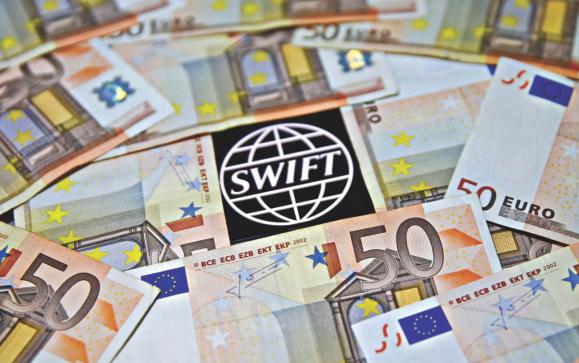Interbank messaging service SWIFT, which is used to transfer trillions of dollars between banks every day, will launch a new tool to spot fraudulent messages, seeking to restore trust in the system after millions of dollars were stolen in cyber raids.
Belgium-based SWIFT said on Wednesday that it will offer clients a service that will be able to learn a user bank's messaging patterns so that it can spot if a payment is being made to an unusual counterparty or for an unusual amount.
Last year $81 million was stolen from Bangladesh's central bank after thieves hacked into its SWIFT system and sent instructions to the Federal Reserve Bank of New York to pay money from Bangladesh Bank's account to parties in Asia.
SWIFT was criticized last year by some users and industry players for failing to beef up security on its system even as the risk of cyber attacks increased and the network expanded to include smaller institutions with more lax security procedures.
Though SWIFT launched a range of new security measures and services in September, the latest product -- due to be introduced early next year -- will "red-flag", or put on hold, payment instructions that exceed limits set by clients or are deemed anomalous by the system's learning software.
“The new payment controls service is a direct response to our community's request for additional services to complement and strengthen existing fraud controls," SWIFT Chairman Yawar Shah said.
Luc Meurant, SWIFT's head of financial crime compliance services, told Reuters that the service would be targeted initially at institutions and central banks with small messaging volumes because they might not be able to afford to develop such detection tools themselves.
He said the service could cost small users as little as 10,000 euros a year, though prices have yet to be finalised.
news:daily star/13-apr-2017




 A cyber attack on Union Bank of India last July began after an employee opened an email attachment releasing malware that allowed hackers to steal the state-run bank's data, the Wall Street Journal reported on Monday.
A cyber attack on Union Bank of India last July began after an employee opened an email attachment releasing malware that allowed hackers to steal the state-run bank's data, the Wall Street Journal reported on Monday. Prime Minister Sheikh Hasina, who is the chairperson of the Executive Committee of the National Economic Council (ECNEC), has cancelled the proposed ‘Modernisation of State-owned Financial Institutions Project’ because the financial involvement of
Prime Minister Sheikh Hasina, who is the chairperson of the Executive Committee of the National Economic Council (ECNEC), has cancelled the proposed ‘Modernisation of State-owned Financial Institutions Project’ because the financial involvement of